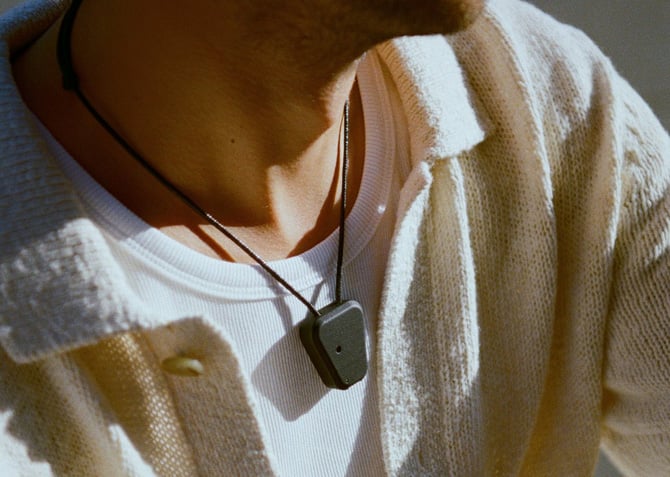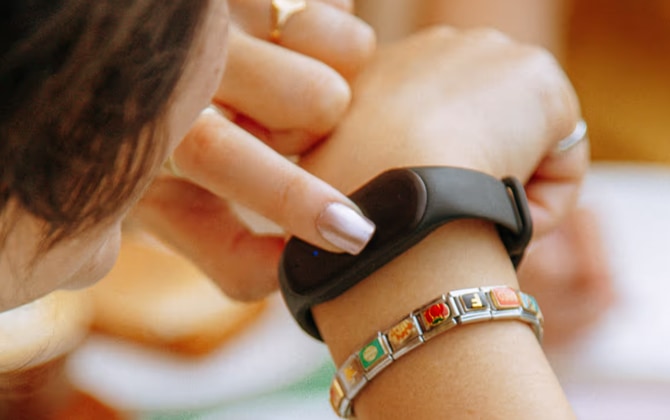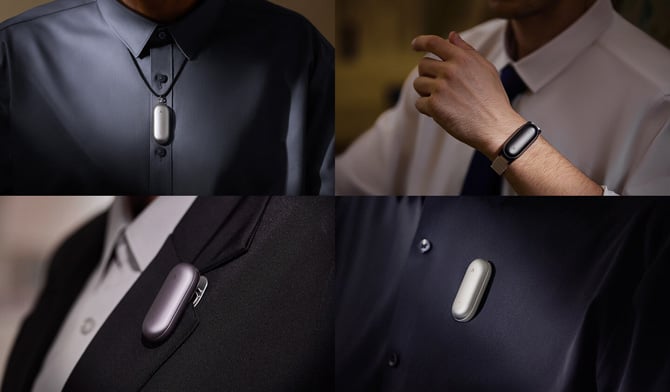The latest AI-powered smart assistants make big promises about how they can make your life easier, offering to summarize conversations, create to-do lists, set reminders, and proactively provide the information you need before you even realize you need it. In today’s busy world, it’s a tempting offer to have a smart digital assistant that pays careful attention to everything happening around us to help us remember things and keep us on task.
Our smartphones and smartwatches keep trying to fill this role, but even as Apple, Google, and Samsung build more AI features into their devices, they don’t quite work as full-fledged personal assistants. The technology improves with every new release, but right now, I'm still surprised when Siri and Google correctly add things to my calendars or successfully respond to natural language requests. And the first generation of gadgets specifically designed as AI-powered helpers haven’t lived up to expectations, like the Humane AI pin and the Rabbit R1. Both of these smart devices fell flat, neither as smart (nor as helpful) as advertised.
So, can the latest smart wearables really bring AI-powered features that help us rather than frustrate us? I think they finally might because the latest AI-fueled smart wearables we’ve seen at CES focus on doing a few specific tasks and doing them well.
Three wearables caught our attention this year, and each of them focuses on recording audio of what’s happening around you. The devices then use AI to summarize meetings and conversations and offer appropriate reminders or create to-do lists based on what they've heard. If these devices work as well as promised in real-world situations, they could take a huge mental load off us in a way that other gadgets can’t.
Another interesting application for these devices is for people with memory problems. A smart wearable that can summarize conversations and create reminders could be a game-changer, perhaps even helping individuals with serious health conditions, such as early-stage dementia, maintain more independence.

Field Labs Compass AI necklace
The most impressive of the wearable bunch is actually the simplest: the Compass AI smart necklace. The Compass wearable records everything around you and then transcribes conversations, using AI to create summaries and reminders and even answer questions about what you’ve done today via a smartphone app. Current AI tools are quite good at summarizing information and pulling out key facts, and Compass collects the data to put this kind of AI power to use for you.
You get 10 hours of free access these AI features each month. Otherwise, you'll have to pay a subscription fee of $14 per month for unlimited AI use.
You can buy the Compass AI smart necklace now, on sale for $99 (usually $165).

Bee Pioneer
Bee’s Pioneer band works similarly, but it’s a wristband rather than a necklace. With the press of a button, it records what you’ve said and where you’ve been, creating a record of your day that it uses to create to-do items for you, summarize what’s happened during the day, offer personalized insights, and search through your history to answer questions – all useful features to take some cognitive load off of you. Bee promises even more intelligence is coming in the future, like the ability to proactively order groceries or send emails – future goals that feel a little more questionable.
Having an AI that could order groceries when I’m out of things would be fantastic, but until the feature is available, it’s impossible to say how well the AI may be able to fill this role. Would it be a lifesaver so you never run out of milk, or would it order 20 gallons of milk that you don’t have time to drink? Time will tell how these advanced features play out, but its current feature set is quite solid.
Currently, the Bee Pioneer only works with iPhones, though an Android app is in development. There is no subscription fee, and the app is compatible with both the iPhone and Apple Watch if you want to try it for free.
You can buy the Bee smart band now for $49.99.

Plaud NotePin
The Plaud NotePin is by far the most versatile of this group, with the ability to be worn in multiple ways, including as a lanyard, wristband, jacket clip, or pin. This flexibility ensures it works well with different outfits, which I appreciate. Like the other devices, it uses AI to generate reminders, to-do lists, and summaries based on what it hears throughout the day.
While it doesn’t require a subscription, the included five hours of transcription per month may feel limiting. For most people, the optional $79 annual subscription, which provides 20 hours of transcription per month, should be sufficient. I think the NotePin will be particularly useful during meetings or interviews, allowing me to focus on the conversation without the distraction of taking notes.
You can buy the Plaud NotePin now for $169 (including the Accessory Kit) with a free starter subscription with 300 minutes per month of transcription.
As for looks, neither the Compass nor the Bee will win any fashion awards, as both are simple matte-black wearables with a generic tech appearance. The Plaud, however, has a more stylish look, with three color options and a polished finish. The Compass and Plaud necklaces are particularly well-placed to capture conversations, though they don’t quite resemble traditional necklaces. While the Plaud may be the most attractive of this lineup of smart personal assistants, not everyone will love its aesthetic. The Bee and Plaud can be a bit more subtle, thanks to their ability to be worn as a simple wristband that resembles a fitness tracker. However, this positioning may not be ideal for capturing your voice, particularly if the device ends up hidden under a long-sleeved shirt.
Read more: Chromebook's AI Upgrades Will Make Everyday Tasks Easier
The technology in all of these is certainly impressive, but it leaves us with a big question: how will these always-on (or often-on) recording devices protect our privacy and the privacy of those around us? These devices allow you to record information subtly, without anyone around you realizing it – and for an AI to process the information to transcribe or summarize it, that information needs to be sent to the cloud. Privacy and security are important concerns with any AI-powered technology, but these devices collect a lot of personal data, making the issue more pressing.
Plaud is the only company in this lineup that complies with GDPR data privacy laws, but it's unclear whether they extend those protections to U.S. customers. I suspect the future of this type of AI personal assistant technology will depend on how carefully companies handle your data. We'll see how AI-related security concerns evolve as AI continues to iterate rapidly – and as new products emerge.
Still, each of these wearables shows off ways AI could genuinely help us with everyday tasks, practically acting as a personal assistant who always follows behind us, taking notes. That’s something that anyone would find useful.
[Image credit: Bee, Compass, Plaud.io]
Elizabeth Harper is a writer and editor with more than a decade of experience covering consumer technology and entertainment. In addition to writing for Techlicious, she's Editorial Director of Blizzard Watch and is published on sites all over the web, including Time, CBS, Engadget, The Daily Dot and DealNews.

















